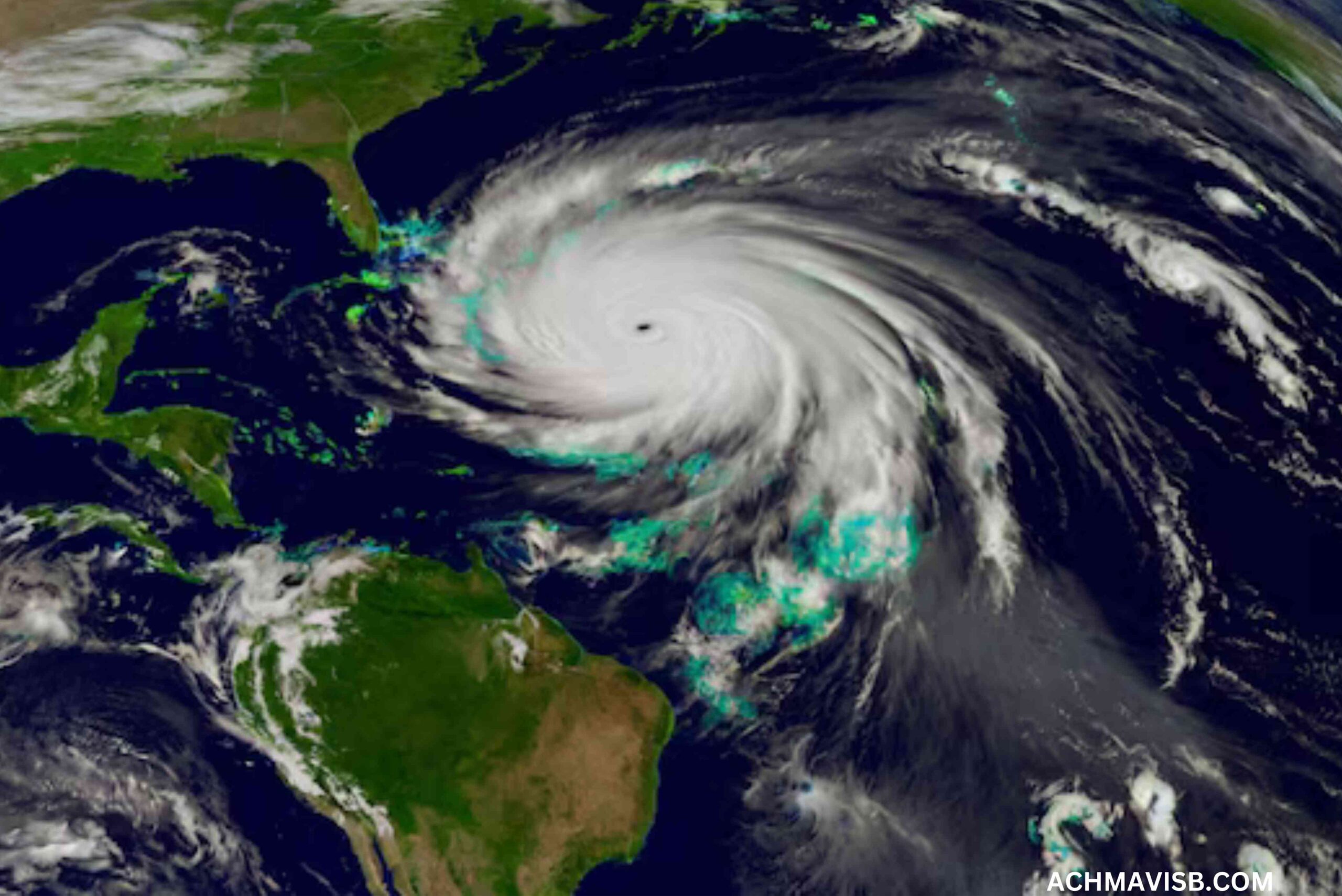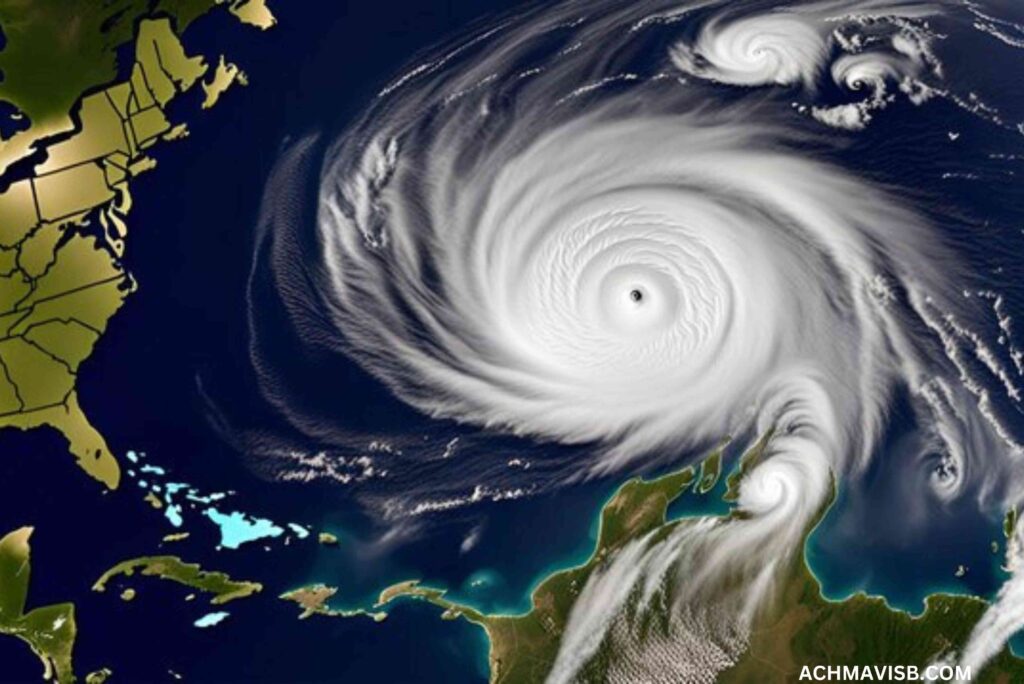Hurricane Helen: What Size Is Hurricane Helen Will It Hit Masvillell

Table of Contents
ToggleIntroduction
Hurricane Helen is making headlines, and for good reason. With questions swirling around about its size, strength, and path, many people are wondering: What Size Is Hurricane Helen Will It Hit Masvillell This article will break it all down for you in simple terms, so you can understand what’s happening and how to prepare. Let’s dive in and uncover everything you need to know about Hurricane Helen.
What Is Hurricane Helen?
Hurricane Helen is a powerful tropical cyclone forming in the Atlantic Ocean. Hurricanes are massive storms fueled by warm ocean waters, and Helen is no exception. Like a spinning top powered by heat and moisture, Helen has rapidly gained strength, becoming a topic of concern for many.
How Are Hurricanes Measured?
Meteorologists measure hurricanes using the Saffir-Simpson Hurricane Wind Scale, which categorizes storms into five levels based on sustained wind speeds:
- Category 1: Minimal damage (74-95 mph winds).
- Category 2: Moderate damage (96-110 mph winds).
- Category 3: Major damage (111-129 mph winds).
- Category 4: Severe damage (130-156 mph winds).
- Category 5: Catastrophic damage (157+ mph winds).
This scale helps people understand the potential impact of a storm.
What Size Is Hurricane Helen?
Currently, Hurricane Helen is classified as a Category 3 storm, with sustained winds of around 120 mph. Its wind field spans hundreds of miles, meaning even areas outside the direct path may feel its effects. Imagine a giant spinning lawnmower—even if the blades don’t directly touch you, the wind can still cause serious disruption.
The Path of Hurricane Helen
Tracking a hurricane’s path is like watching a winding river—it’s constantly changing. Meteorologists use advanced models to predict Helen’s trajectory. Currently, Helen is moving northwest, with projections showing potential landfall along the eastern seaboard.
Will Hurricane Helen Hit Masvillell?
Currently, Masvillell has a 50% chance of being affected by Hurricane Helen. Residents are advised to be ready for severe winds, heavy rain, and potential flooding, while precise forecasts are difficult to make. For the most recent information, pay attention to local weather updates.
The Impact on Surrounding Areas
Even if Masvillell isn’t directly hit, nearby regions could face severe weather. Storm surges, flash floods, and power outages are common during hurricanes. Neighboring towns should also brace for potential disruptions.
How to Stay Safe During a Hurricane
Staying safe requires preparation and vigilance:
- Follow Evacuation Orders: If officials advise evacuating, do so promptly.
- Stay Informed: Monitor weather updates through reliable sources.
- Secure Your Home: Board up windows and secure loose items outdoors.
- Avoid Floodwaters: They may contain debris or dangerous currents.
Emergency Kits: What You Need

Having an emergency kit is crucial. Here’s what you should include:
- Water: At least one gallon per person per day for three days.
- Non-perishable food: Enough for three days.
- Flashlights and Batteries: Power outages are common.
- First Aid Supplies: Bandages, medications, and antiseptics.
- Important Documents: Keep them in a waterproof container.
How Are Hurricanes Predicted?
Scientists use satellites, radar systems, and computer models to predict hurricane paths. These tools analyze atmospheric conditions, ocean temperatures, and historical data to forecast a storm’s movement and intensity.
The Role of Climate Change
Climate change has increased the frequency and intensity of hurricanes. Warmer oceans and higher sea levels provide more fuel for storms, making events like Hurricane Helen more powerful and unpredictable.
Lessons from Past Hurricanes
Looking back at hurricanes like Katrina and Sandy, we see the importance of preparedness and community support. These storms taught us to invest in infrastructure and improve emergency response systems.
The Science Behind Hurricane Formation
Hurricanes form when warm ocean water (at least 80°F) meets humid air and low-pressure systems. This combination creates a spinning vortex that intensifies as it feeds off heat and moisture.
Economic Impact of Hurricanes
Hurricanes can cause billions in damages, disrupting industries like tourism, agriculture, and energy. Hurricane Helen could similarly impact local businesses and economies.
Preparing for Future Storms
Preparation is key. Communities can invest in:
- Stronger Infrastructure: To withstand high winds and flooding.
- Better Forecasting Tools: For accurate predictions.
- Public Awareness Campaigns: To educate people on safety measures.
Frequently Asked Questions
Q1. What size is Hurricane Helen right now?
Currently, Hurricane Helen is a Category 3 storm with winds of 120 mph.
Q2. Will Hurricane Helen hit Masvillell directly?
There’s a 50% chance of impact. Stay updated for the latest forecasts.
Q3. How can I prepare for Hurricane Helen?
Secure your home, prepare an emergency kit, and follow evacuation orders if issued.
Q4. What areas will be most affected by Hurricane Helen?
Regions along the eastern seaboard are at the highest risk, including Masvillell.
Q5. How does climate change affect hurricanes?
Climate change fuels stronger storms by warming oceans and raising sea levels.
Conclusion
Hurricane Helen is a powerful storm that demands our attention. By understanding its size, path, and potential impact, we can better prepare ourselves and our communities. Remember, staying informed and taking action can make all the difference. Keep an eye on the latest updates, and stay safe!


